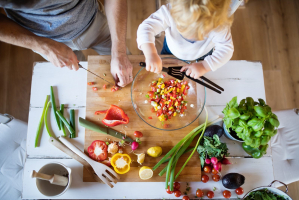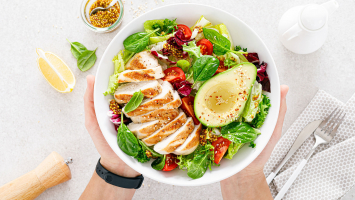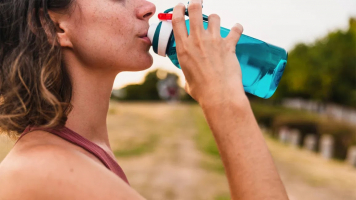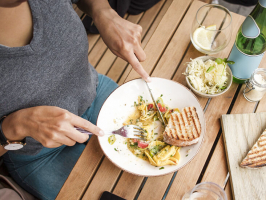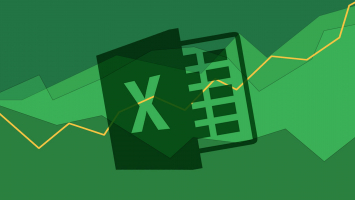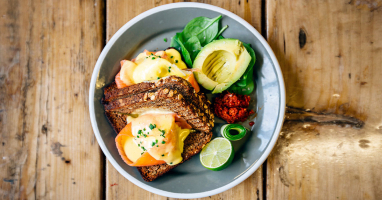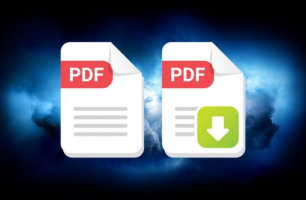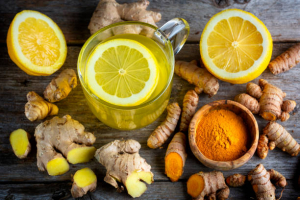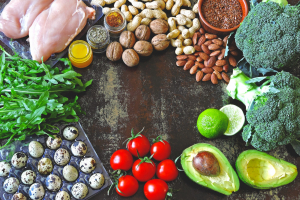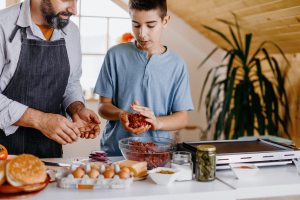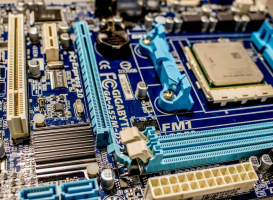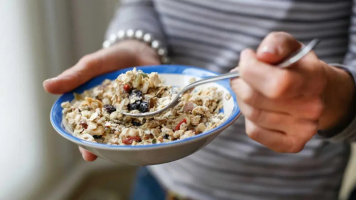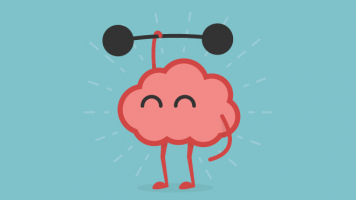Top 10 Easy Ways to Reduce Your Carbohydrate Intake
There’s a lot of discussion about carbohydrates being the enemy in our diet culture, but that’s not the truth. Carbohydrates are an essential component of most ... read more...diets. In reality, complex carbohydrates derived from whole, unprocessed plant sources are often high in nutrients. However, in some cases, reducing carbohydrate intake may give actual health advantages. This is especially true for simple carbohydrates, which are produced from highly processed meals and provide no extra nutrients. If your nutritionist or doctor has suggested you cut back on carbohydrates as part of a healthy lifestyle makeover, these are the simplest methods to do it.
-
The majority of sugar, whether fructose, lactose, maltose, sucrose, or glucose, is classified as a simple carbohydrate. Simple carbohydrates give immediate energy, prompting your blood sugar to spike and your pancreas to secrete insulin. Sugar-sweetened beverages, such as sodas or sweetened iced teas, can add a lot of extra carbohydrates to your diet in the form of sugar.
One can (12 fluid ounces) of non-diet cola, for example, has 35 grams of carbohydrates, whereas one small sweetened iced tea drink contains 29.5 grams of carbs. These carbohydrates are virtually completely made up of sugar. Regular intake of sugar-sweetened beverages has been linked to the development of type 2 diabetes, therefore cutting less on these drinks may help minimize your risk. Flavored seltzers are a terrific replacement for something refreshing.
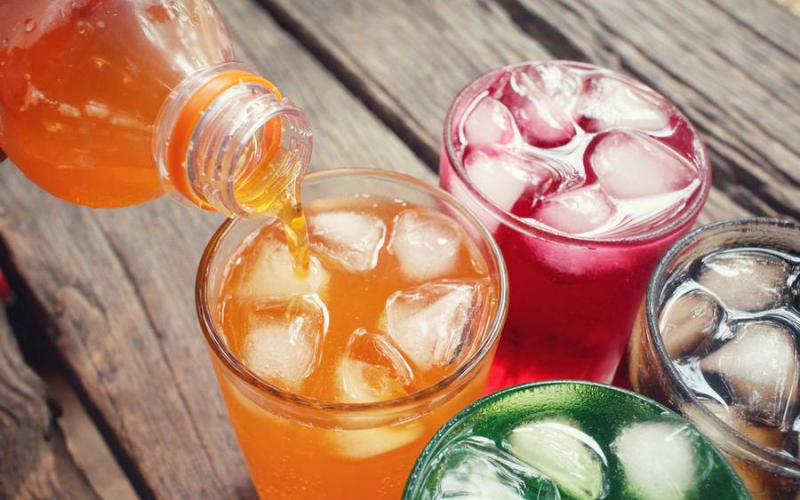
Curb your intake of sugar-sweetened drinks 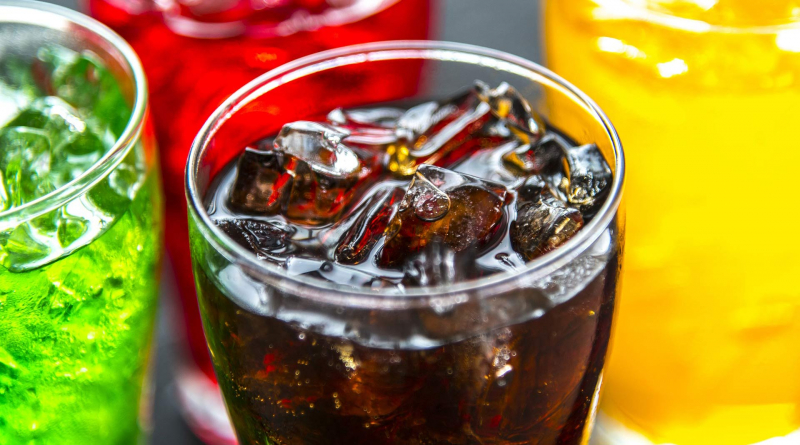
Curb your intake of sugar-sweetened drinks -
Many pieces of bread, particularly whole grain bread, include vitamins and minerals. Unrefined whole grain bread is also classified as a complex carb, which means it takes longer to digest and impacts blood sugar gradually rather than abruptly. While refined grain bread, such as white bread, isn't generally higher in carbohydrates than whole grain bread, the refining process can diminish the bread's micronutrient and fiber content.
Because the bread lacks fiber, the sugar and carbohydrates in it are digested fast in the body, causing blood sugar rises. This can lead to the development of type 2 diabetes over time. Sticking to a reasonable quantity of whole grain bread, or reducing your overall bread consumption, will help you consume fewer simple carbohydrates that can elevate blood sugar.
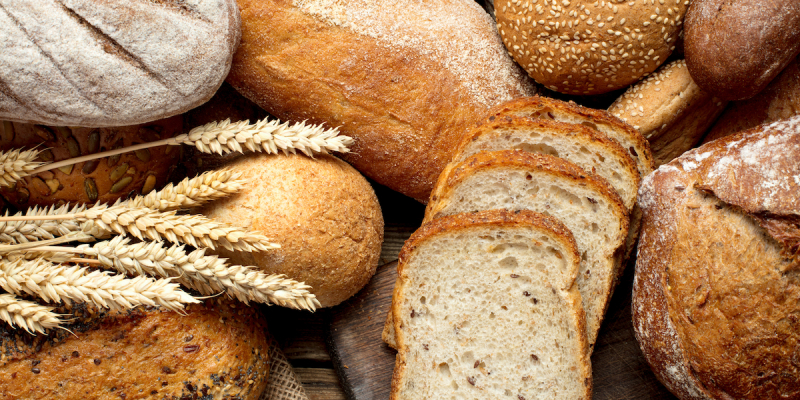
Cut back on refined grain bread 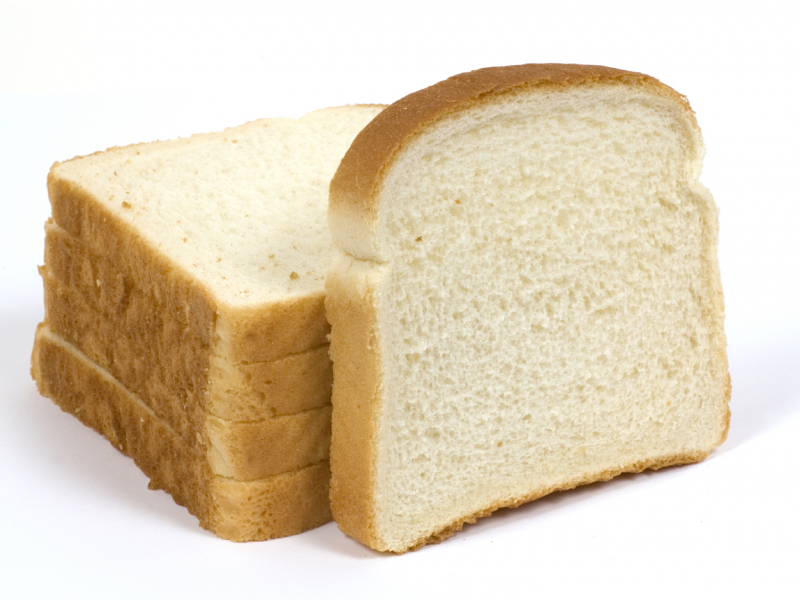
Cut back on refined grain bread -
Fruit juice, unlike entire fruit, contains little to no fiber and is often rich in fructose, a kind of fruit sugar that is also termed a simple carb. Although it contains certain vitamins and minerals, fruit juice is relatively similar in terms of sugar and carbohydrates to sugar-sweetened drinks (such as soda).
For example, one bottle (about 10 fluid ounces) of 100% apple juice has 35 grams of carbohydrates, the majority of which is sugar. Consider eating a piece of fruit instead of fruit juice if you want to ingest fewer carbohydrates. Whole fruit is generally just as delicious, plus it contains fiber, which may aid diabetics with blood sugar increases.
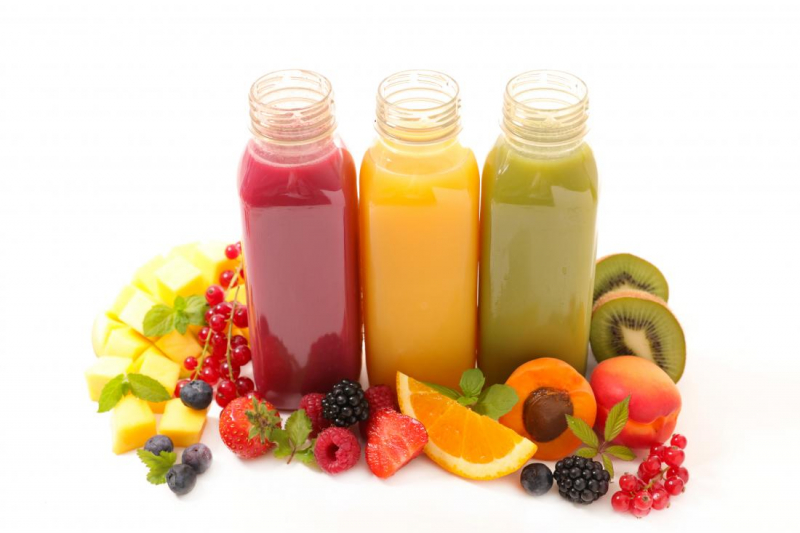
Think about fruit juice 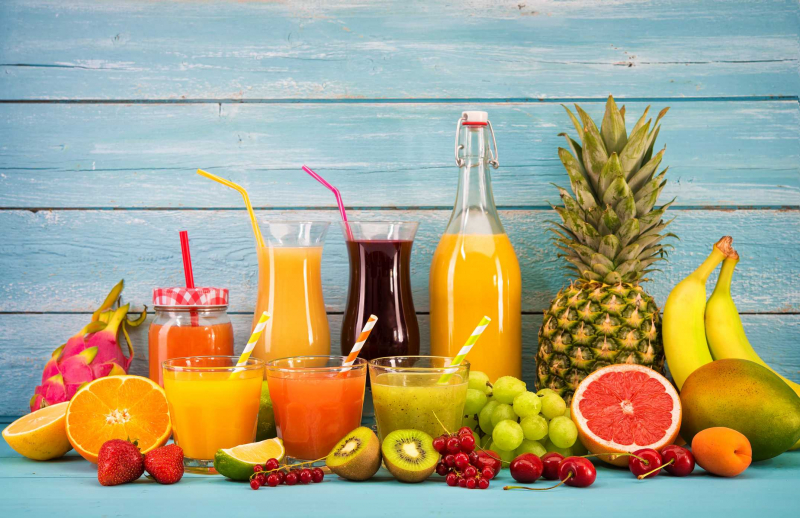
Think about fruit juice -
Carbohydrates in snack items like chips, pretzels, and crackers may rapidly pile up. This is due to the fact that these salty, savory snacks are typically low in protein and fiber, two macronutrients that contribute to a full sensation. As a result, you may find yourself consuming far more than you intended.
Incorporating additional low-carb snacks with a high protein and fiber content might help you feel satiated. If you're searching for some inspiration, almonds, cheese, and eggs are strong in protein and low in carbohydrates. There are also several low-carb snack roundups on the internet that may help inspire your creativity.
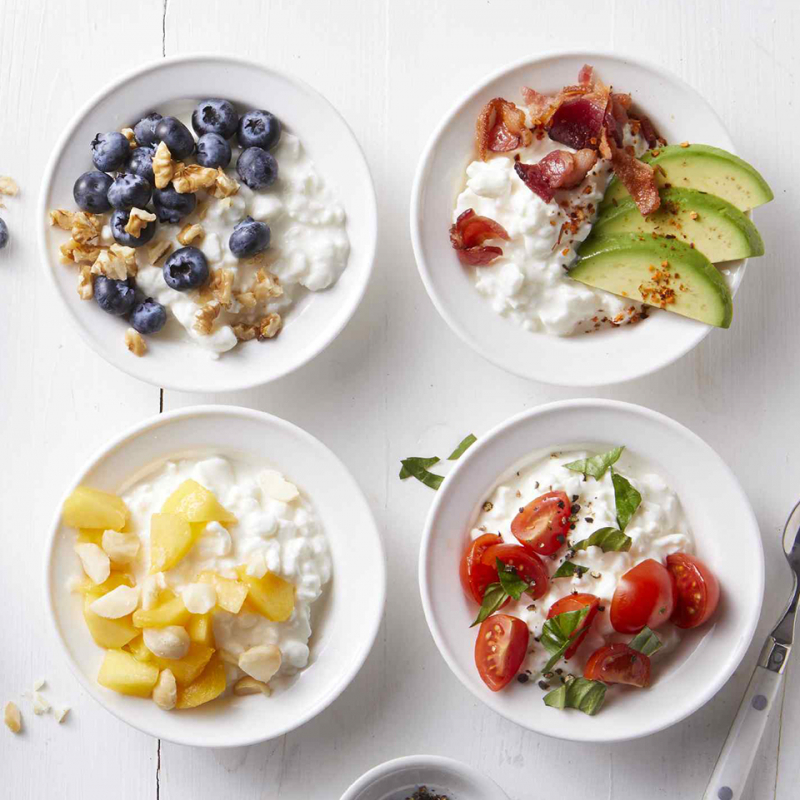
Choose lower-carb snacks 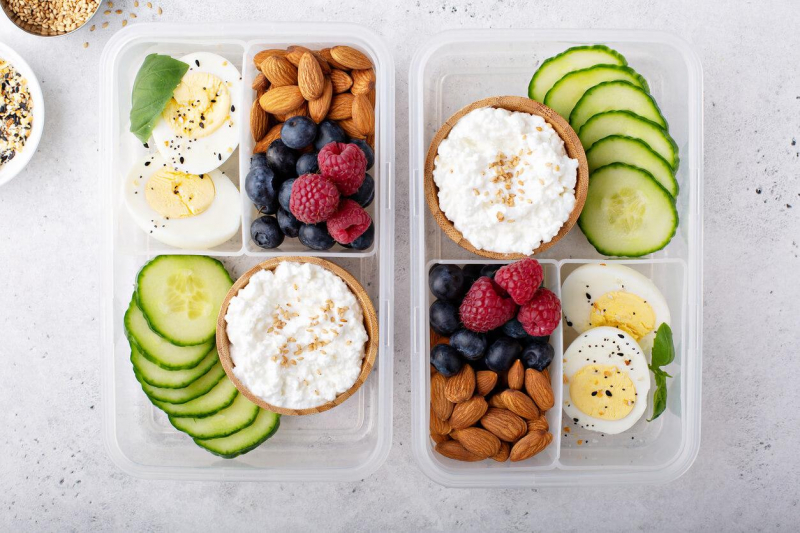
Choose lower-carb snacks -
Even though they appear "healthy" at first look, breakfast dishes might contain hidden levels of carbohydrates and sugar. A cup of store-bought granola, for example, can have roughly 68 grams of carbohydrates, whereas a cup of Raisin Bran cereal can have around 46 grams. Breakfast cereals, while containing vitamins and fiber, can be high in simple carbohydrates due to added sugar. Long-term use of sugary foods can cause blood sugar rises in those who already have diabetes. Consider including more eggs in your morning routine if you're seeking choices with less simple carbohydrates.
One egg has less than one gram of carbohydrates. Eggs are also a high-quality protein source, which can help you feel filled for longer and potentially eat less for the remainder of the day. Furthermore, eggs are incredibly adaptable and may be served in a variety of ways, including hard boiling for a quick breakfast. Low-sugar yogurt, crustless quiche, nut butter on celery sticks or low-carb bread, and a breakfast pan with veggies and potatoes are some other low-carb breakfast alternatives.
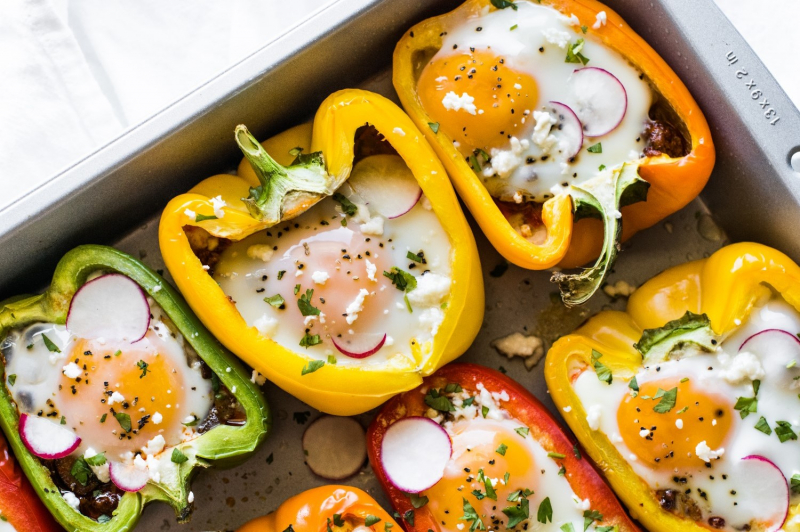
Start your day with eggs or other lower-carb breakfast foods 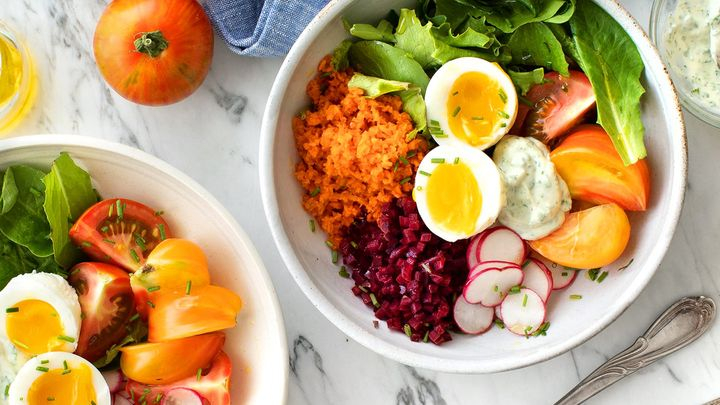
Start your day with eggs or other lower-carb breakfast foods -
While many people love adding sugar to their coffee or tea, it may add a lot of carbohydrates. While honey is a more natural sweetener, it is still pure sugar. One tablespoon has 17 grams of carbohydrates, all of which are sugar. If you want to maintain your sweetened coffee, there are lots of sugar substitutes that are low in sugar or even sugar-free:
- Stevia is derived from the stevia plant, which was discovered in South America. Several studies have suggested that stevia may have a possible blood glucose-lowering impact on diabetics.
- Erythritol is a sugar alcohol that tastes like sugar, does not elevate blood sugar or insulin levels, and may aid in cavity prevention by destroying plaque-causing bacteria.
- Another sugar alcohol, xylitol, also aids in the battle against the microorganisms that cause tooth decay. Furthermore, research shows that it may be useful for blood sugar regulation.
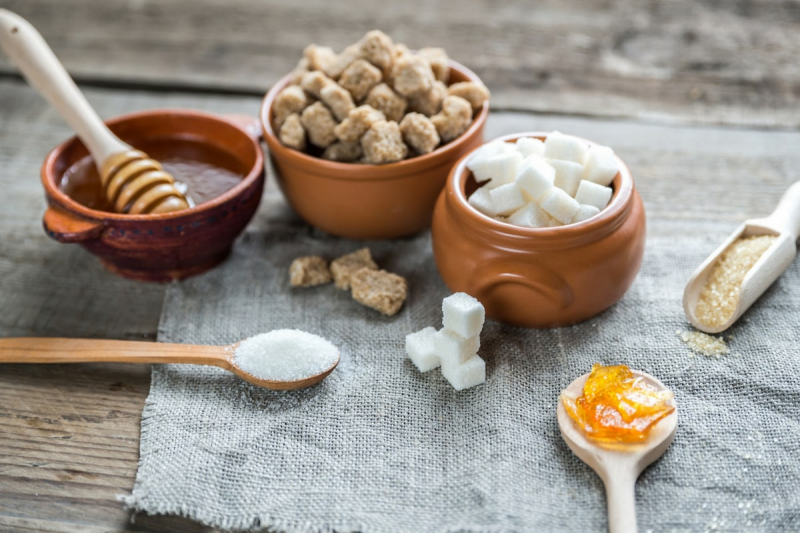
Use sugar alternatives 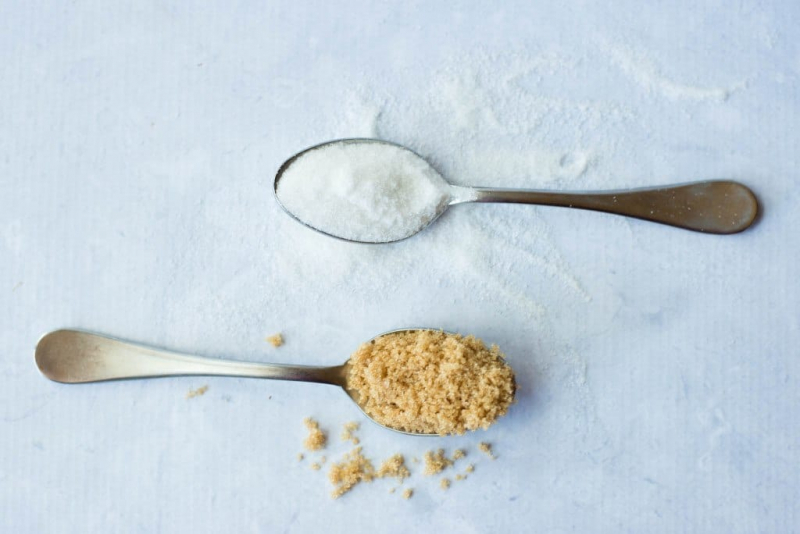
Use sugar alternatives -
White flour is commonly used as the foundation for many baked items, such as bread, muffins, and cookies, and it is also used to cover most fried meals. White flour is a refined grain, which implies that many of the nutrients and fiber have been removed. Because it has less fiber, it digests faster and may cause insulin rises in those with type 2 diabetes. After eating anything prepared with refined flour, you may feel less satiated.
If you want to bake anything, consider replacing white flour with whole grain flour, which has more fiber and a higher nutritional profile. You might also substitute coconut or almond flour for white flour, as both alternatives are lower in carbohydrates. These flours, however, have a higher fat content than white or whole grain flour. When purchasing or baking using an alternative flour, bear in mind that the texture of the completed product may be heavier due to a lack of gluten (for almond or coconut flour) or less refining (for whole wheat flour).
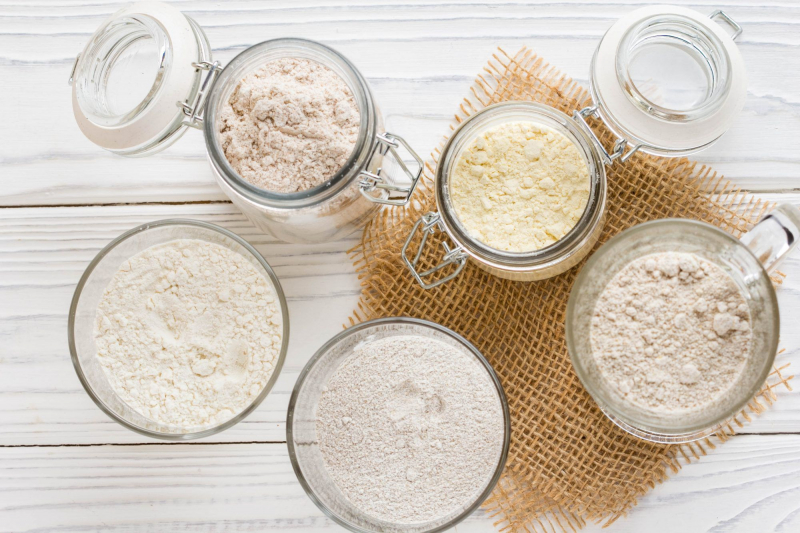
Substitute alternative flours for white flour 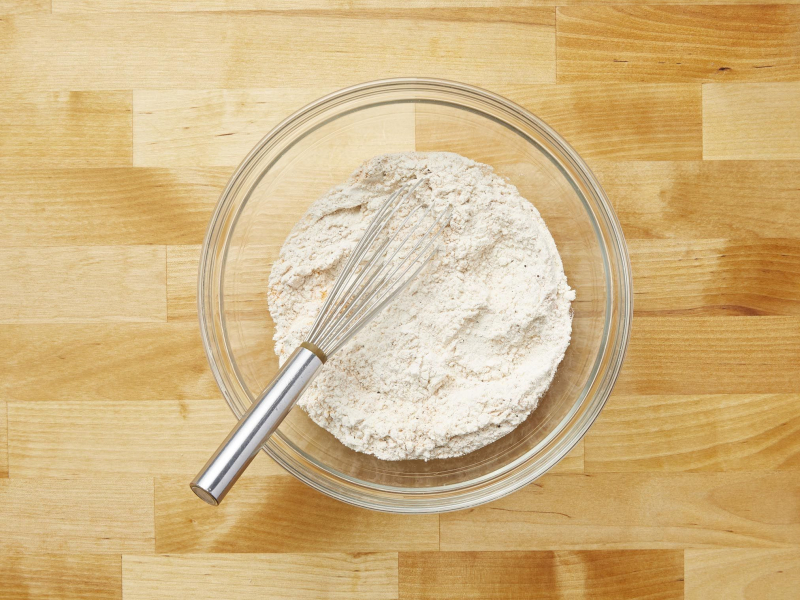
Substitute alternative flours for white flour -
If you enjoy carbs but are attempting to cut back, one of the greatest ways to stay content is to eat high-protein foods. Protein has been demonstrated to improve satiety, which means it keeps you feeling fuller for longer. It may also assist you in eating less during the day.
Furthermore, protein has a little greater thermic value than fat or carbohydrates, which means it takes more calories to break down. You may even benefit from weight reduction by favoring meals strong in protein (while still complementing your diet with complex carbs).
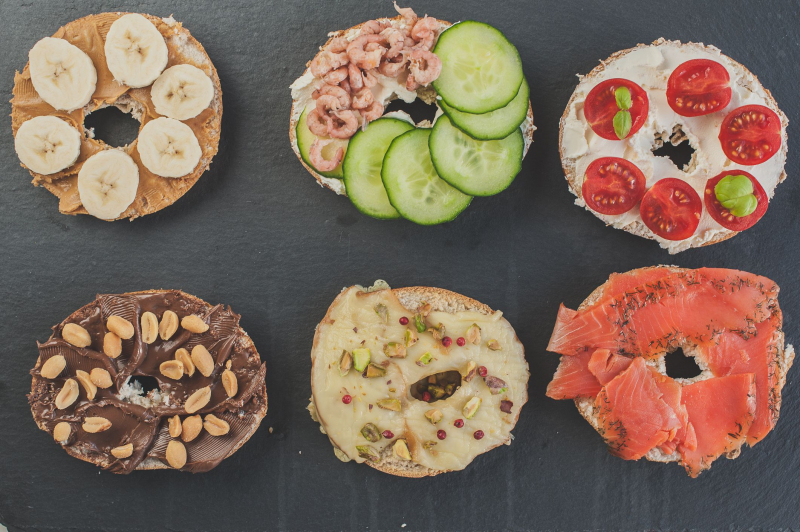
Focus on high protein foods 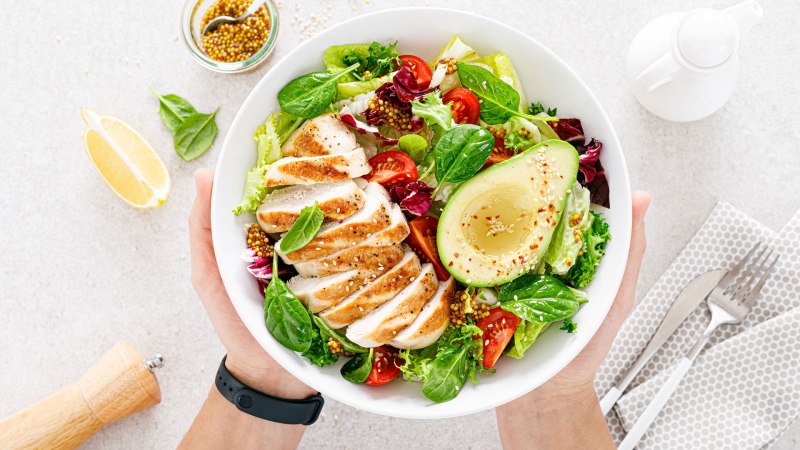
Focus on high protein foods -
Vegetables are a good source of fiber and minerals. They also include phytochemicals (plant compounds), many of which act as antioxidants, aiding in disease prevention. However, if you're aiming to limit your carb intake, you should choose non-starchy veggies. Non-starchy veggies recommended by the American Diabetes Association include artichokes, asparagus, broccoli, carrots, mushrooms, and tomatoes.
When you reduce your carbohydrate consumption, you may find yourself consuming extra protein as well as fat. If you're trying to lose or maintain weight, focusing on healthier fats will help you remain on track. While research has been mixed on what precisely makes a certain type of fat beneficial for humans, foods like fatty fish, nuts, seeds, olive oil, and dairy consistently show up as excellent fats. Moderation and diversity, like with anything else, are essential.
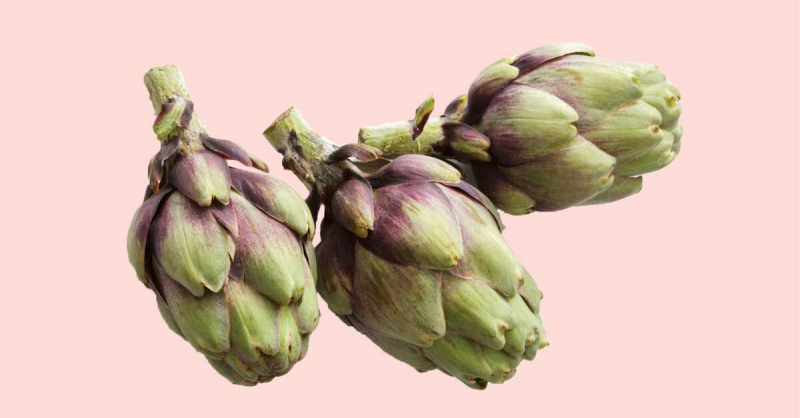
Emphasize non-starchy vegetables 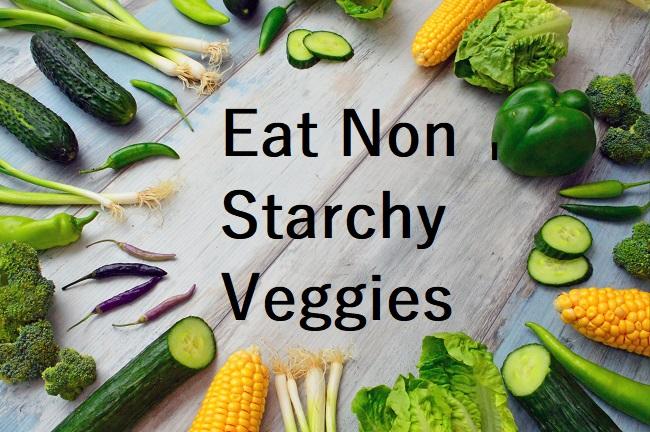
Emphasize non-starchy vegetables -
Food labels include useful information on the carbohydrate content of packaged foods. It's also crucial to pay attention to portion size, especially when consuming foods that are high in sugar (simple carbohydrates) and have lower serving sizes than many people are used to. Cereal packaging and ads, for example, frequently exaggerate portion-size portrayals, making it simpler for individuals to eat more than one meal at a time.
A nutrition tracker is an excellent tool for tracking your regular food consumption. The majority are available as smartphone and tablet apps, as well as online. When you add carbs and other nutrients into the tracker, they are immediately computed. The majority of the information in these food databases is reliable. Keep in mind, however, that some of these applications allow users to enter unique nutrition information, which may or may not be true.

Pay attention to food labels 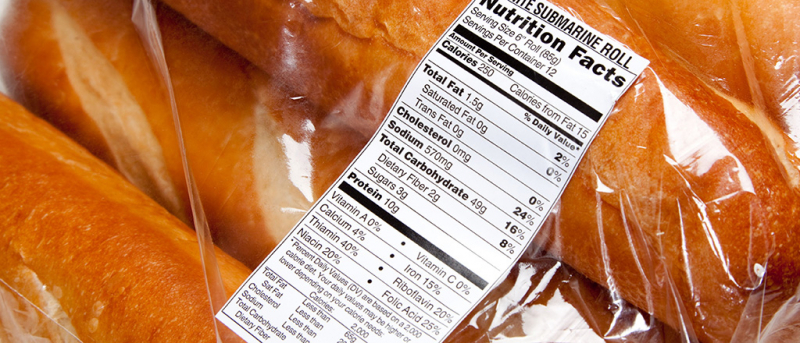
Pay attention to food labels












